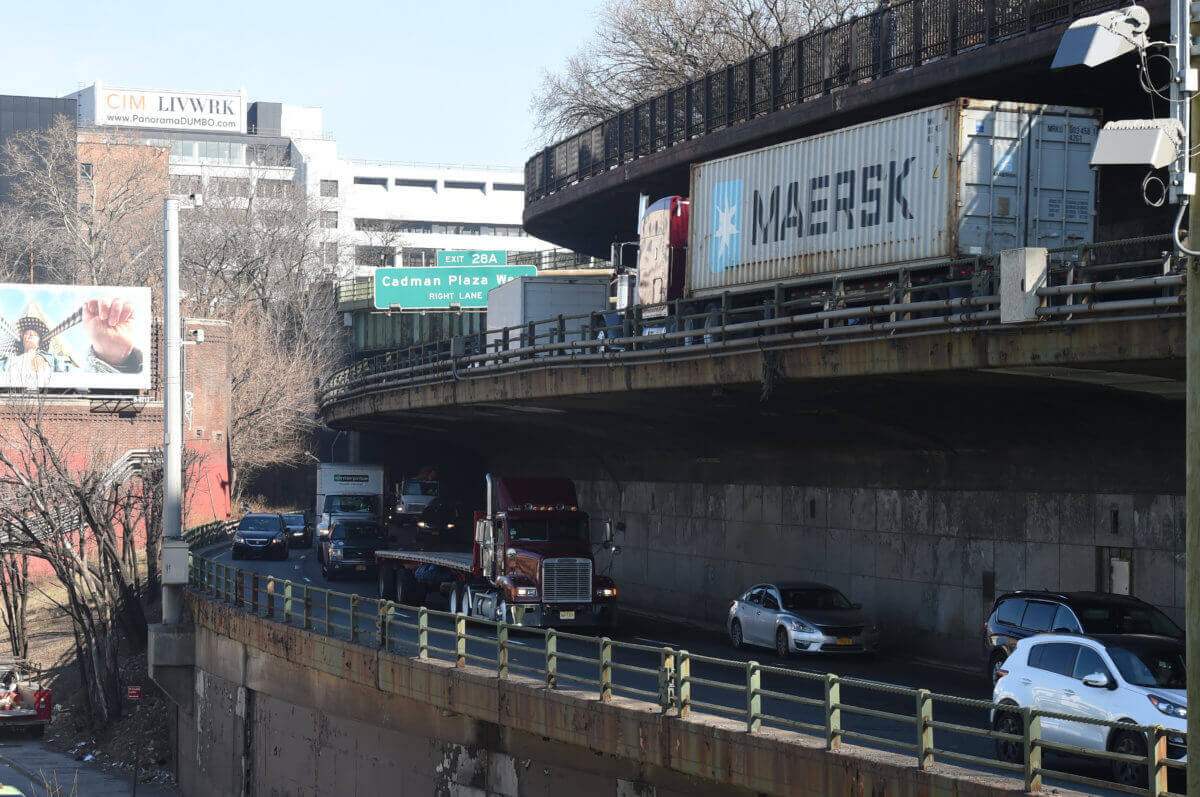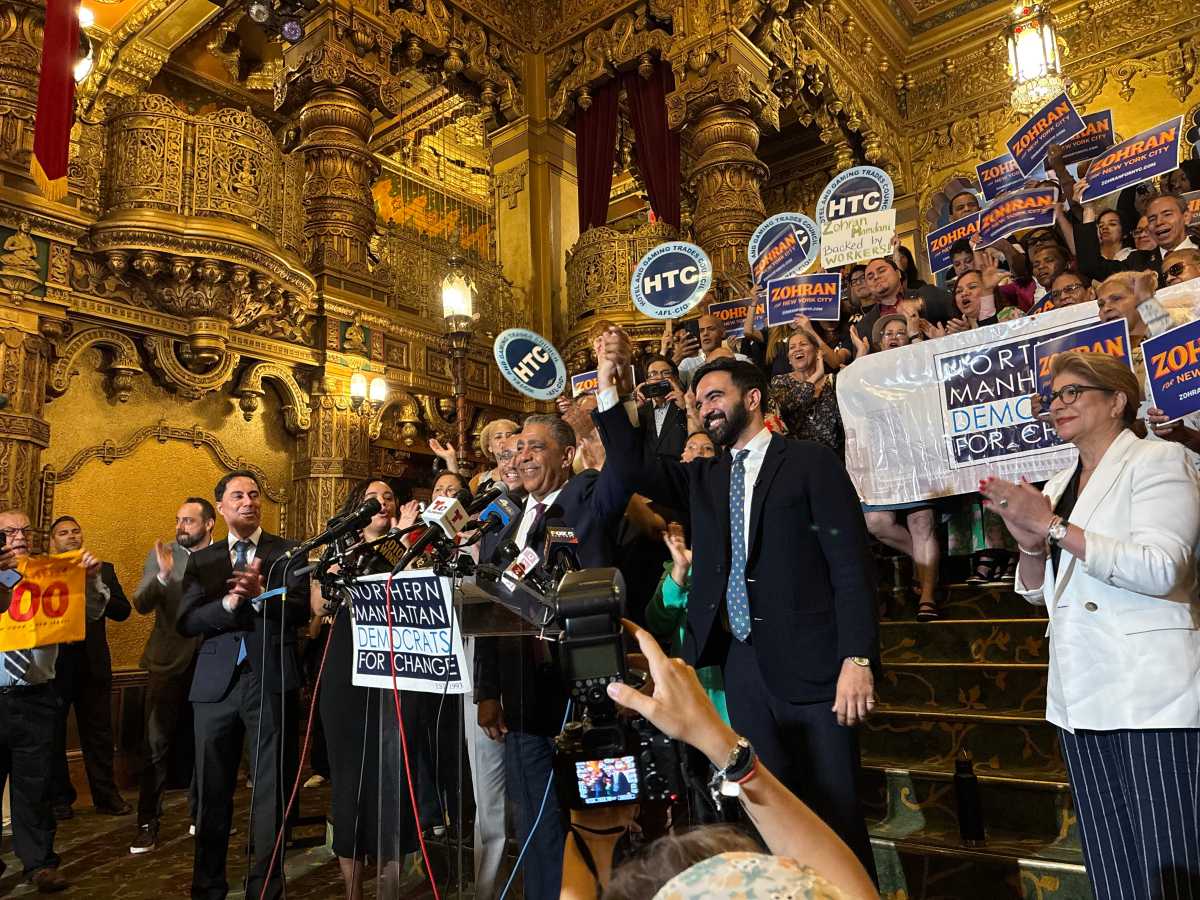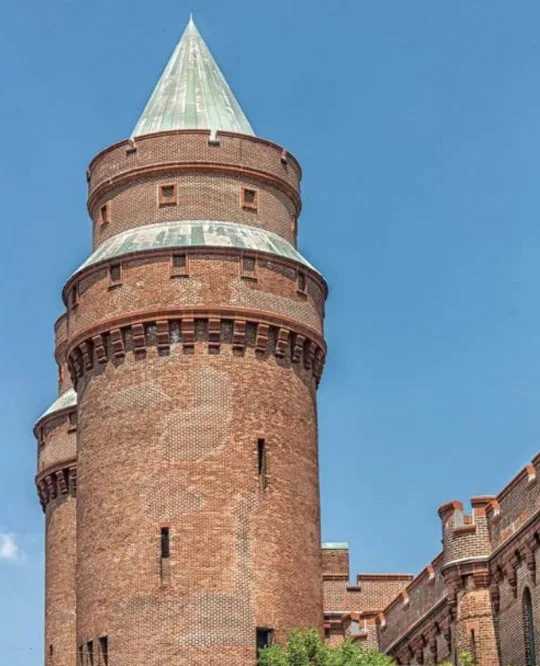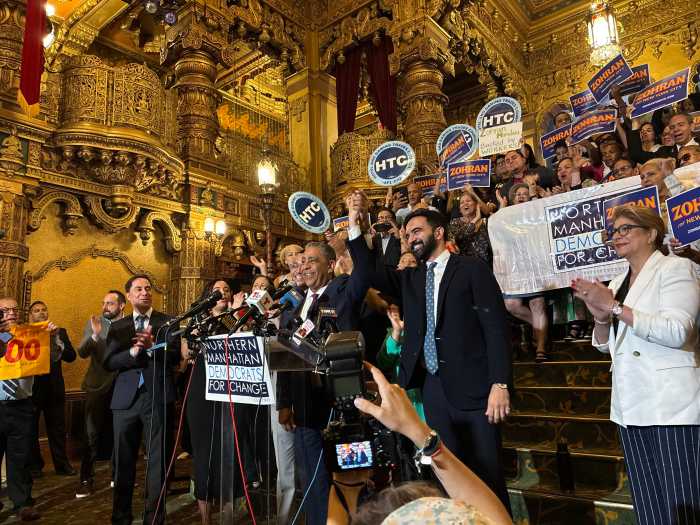The Biden administration has rejected the city’s applications for $800 million in infrastructure grants to redesign and reconstruct the crumbling triple cantilever section of the Brooklyn-Queens Expressway, Brooklyn Paper’s sister publication amNewYork Metro first reported.
The Federal Highway Administration (FHWA) rebuffed the city Department of Transportation’s (DOT) applications for grants under the Biden administration’s Infra and Mega programs last month, potentially imperiling the Adams administration’s hopes to redesign and rebuild the widely-maligned triple cantilever section of highway in Brooklyn Heights over the next few years.
The 1940s-era highway constructed by “master builder” Robert Moses has been deteriorating for decades, and in 2020, an “expert panel” convened by former Mayor Bill de Blasio warned the cantilever could be unsafe for travel as early as 2026.
After numerous false starts, in 2022 the Adams administration unveiled a series of “reimagining” proposals for the 1.5-mile “BQE Central” section between Atlantic Avenue and Sands Street, which includes the 0.4-mile cantilever and is the only part of the highway directly owned by the city.
The plans — which would cost around $5.5 billion, and would rely significantly on federal money authorized by the 2021 Bipartisan Infrastructure Law — called for either a partial or total reconstruction of the cantilever and to cover it up with greenspace, reconnecting Brooklyn Heights to the East River waterfront.
The administration’s proposal left open whether the expressway would maintain the current four lanes or expand back to six, though the additional lane would be a shoulder or high-occupancy vehicle lane rather than a traditional vehicle right-of-way. The lane configuration is now the subject of a traffic study, which led DOT to delay the project’s timeline. The DOT has previously said federal funding comes with stipulations about roadway width.
Still, the widening bit engendered hefty opposition from local elected officials and community groups, some of whom have called for the highway to be torn down entirely and all of whom have objected to the notion of widening it, arguing it would encourage more car trips and imperil the climate locally and globally.
“What we have been objecting to all along is the fact that what they’re imagining for BQE Central is basically a highway expansion project,” said Lara Birnback, executive director of the Brooklyn Heights Association. “We believe in the middle of a climate crisis, when the city and state have set some pretty great targets for reducing greenhouse gas emissions, this kind of flies in the face of that.”
Community opposition may have led to rejection
It’s not clear why the feds rejected the grant applications, though Birnback speculated the wide community opposition could have played a part.
“I do think one of the factors undoubtedly was the level of non-support from the community around this plan,” said Birnback.
A spokesperson for the FHWA deferred a request for comment to its parent agency, the cabinet-level federal Department of Transportation, which did not respond to multiple inquiries.
The city’s DOT did not provide an answer as to why grant funding was rejected, but a spokesperson said it’s common to have to apply for grants multiple times, particularly for a huge project like the BQE. The spokesperson, Mona Bruno, also said that the rejection would not impact the project timeline, which sees construction starting in late 2027 and completion optimistically projected for 2032.
“We are committed to delivering a long-term fix for the city-owned portion of the BQE while developing projects to reconnect communities along the highway’s entire corridor in Brooklyn,” said Bruno. “We are grateful to our federal and state partners on this project, and to the many communities that continue to provide feedback as we work for the best possible project for Brooklyn and for our city. This is only the beginning.”
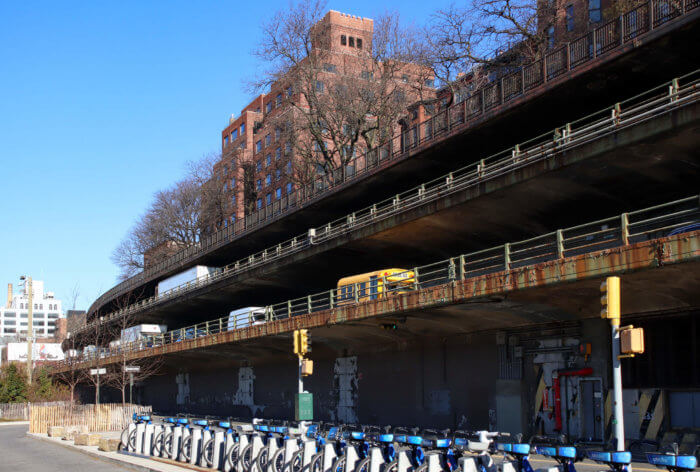
Others aren’t as optimistic.
City Council Member Lincoln Restler, who represents Brooklyn Heights and other north Brooklyn neighborhoods and has criticized Adams’ proposal, thinks the rejection puts the administration in a tough spot.
“This is a multi-billion dollar project, it’s one of the largest and most complex infrastructure undertakings that the city has ever pursued, and it will require federal support,” said Restler. “I imagine the city will be applying again, but without federal funding, the city’s plans do not appear viable.”
Before his election to the Council in 2021, Restler worked in the de Blasio administration as deputy chief of staff, and his portfolio there included working on that administration’s proposals for the BQE.
Other grant applications are still pending, Restler noted. That includes the “Reconnecting Communities” infrastructure grant that funds projects in areas ripped apart by the massive urban highways built in many American cities in the 20th century, such as the BQE.
In the meantime, the city is making other attempts to prolong the lifespan of the expressway and forestall catastrophe. The DOT partially closed the cantilever section in October to conduct repairs, including reinforcing the structure with new concrete and steel bars. And the city has finally begun using automated sensors to enforce weight limits against heavy trucks traveling on the span; the 2020 expert panel estimated about 11% of trucks on the BQE weighed more than the legal limit of 80,000 pounds.
On the other hand, the state DOT has not indicated any interest in redesigning the sections of the BQE north and south of the Central section, which are owned by the state, to the chagrin of Brooklyn elected officials and community groups.


